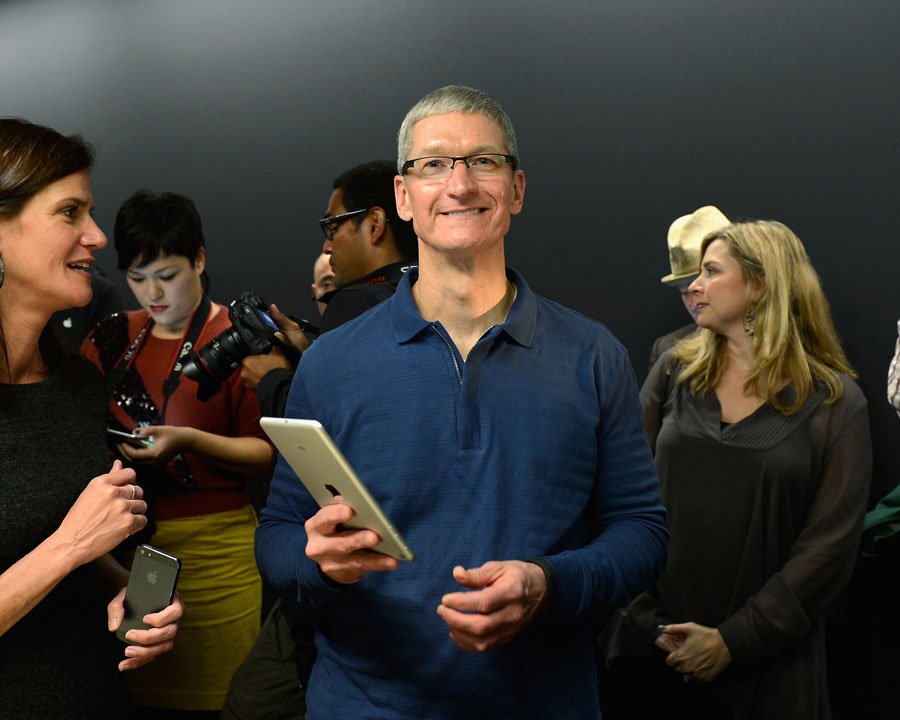When Tim Cook officially took over the CEO position for Steve Jobs in late 2011, he had some major shoes to fill. Jobs wasn’t just chief executive at Apple, he was also its co-founder, savior and visionary. And he was arguably one of the most famous leaders of our generation.
But Cook has done a good job thus far. Apple’s the most profitable company in the world right now, coming off another record-breaking quarter, and it has some big things planned for 2014. So what’s his secret? A new book about Apple post-Jobs attempts to answer just that…
The Wall Street Journal has published an excerpt from former reporter Yukari Iwatani Kane’s new book ‘Haunted Empire: Apple After Steve Jobs.’ As the title suggests, the book offers insight into Tim Cook’s management style and how he continues to grow the house that Jobs built.
Here’s one of my favorite parts:
“Cook joined Apple’s executive team in the spring of 1998, while the company was in the throes of restructuring and desperate for a capable executive who could make Apple’s manufacturing process more efficient. Unlike his predecessors, who sat with the operations team, Cook asked for a small office cater-cornered to Jobs’s on the executive floor. It was a shrewd strategy—staying close to the boss to be attuned to his thinking.
From the start of his Apple tenure, Cook set colossally high expectations. He wanted the best price, the best delivery, the best yield, the best everything. “I want you to act like we are a $20 billion company,” he told the procurement team—even though Apple then had only about $6 billion in annual revenues and was barely eking out a profit. They were playing in a new league now.
To some, Cook was a machine; to others, he was riveting. He could strike terror in the hearts of his subordinates, but he could also motivate them to toil from dawn to midnight for just a word of praise.”
Those who didn’t interact with Cook on a daily basis described him as a gentle Southerner with an aura reminiscent of Mister Rogers. But he wasn’t approachable. The executive worked out at a gym off campus, and those who tried to engage him in conversation saw little success.
“Apple under Jobs was a roller coaster, but Cook’s operations fief was orderly and disciplined. Cook knew every detail in every step of the operations processes. Weekly operations meetings could last five to six hours as he ground through every single item. His subordinates soon learned to plan for meetings with him as if they were cramming for an exam. Even a small miss of a couple of hundred units was examined closely. “Your numbers,” one planner recalled him saying flatly, “make me want to jump out that window over there.”
Meetings with Cook could be terrifying. He exuded a Zenlike calm and didn’t waste words. “Talk about your numbers. Put your spreadsheet up,” he’d say as he nursed a Mountain Dew. (Some staffers wondered why he wasn’t bouncing off the walls from the caffeine.) When Cook turned the spotlight on someone, he hammered them with questions until he was satisfied. “Why is that?” “What do you mean?” “I don’t understand. Why are you not making it clear?” He was known to ask the same exact question 10 times in a row. “
I highly recommend reading the entire piece over at The Wall Street Journal, as it includes many more interesting tidbits. I know from the excerpts it sounds like the book paints Cook in a bad light, but really he’s just cool and calculating, and has opened up a lot since becoming CEO.
For more information on Tim Cook, check out this recent profile of him by AL.com. And if you’re interested, Kane’s book ‘Haunted Empire, Apple After Steve Jobs’ will be published on March 18.
